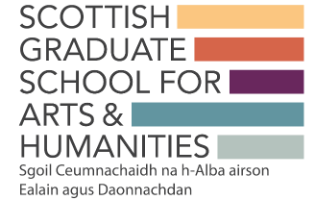Historic Environment Scotland
Organisation
Historic Environment Scotland is the lead public body established to investigate, care for and promote Scotland’s historic environment.
Location
Likely to be remote working.
Project
Natural Language Processing and Listed Building Descriptions
Historic Environment Scotland is the lead public body set up to investigate, care for and promote Scotland’s historic environment. We make data available through websites such as canmore.org.uk and run a programme of continuous improvement of the data we hold.
HES is also responsible for protecting Scotland’s historic environment through designating buildings, sites and places which are of special interest or national importance.
Listed buildings span a wide range of uses and periods and help to create Scotland’s distinctive character. They are a highly visible and accessible part of our heritage, contributing to our sense of place.
The information we hold about listed buildings contain large volumes of free text (see here for an example). Researchers at HES are using Natural Language Processing (NLP) to extract data about dates or periods of construction from these descriptions. The outputs will enable improved searching, visualisation and dissemination of data held by HES. For example, we will be able to depict listed buildings from the 18th century on a map, or rapidly search our databases for listed buildings in Edinburgh constructed during the interwar period. Extracting data using NLP also allows use of the data in other applications; in climate change mitigation, information about construction date and building materials can contribute to adaptation planning.
The project involves refining the rules used to extract data from free text, quality checking of data outputs, assessing list descriptions which contain complex date and period data and dissemination of results. There may also be the opportunity to use NLP to generate data on the researcher’s own interests, or to develop additional small projects with Heritage Directorate staff.
Basic Python skills would be desirable.
Outputs
- Refining rules that allow processing of list descriptions.
- Checking of outputs.
- Assessing list descriptions for complex sites to identify construction dates.
- Working with the Heritage Directorate and HES Comms to disseminate project outputs.
Timescale
Start date c. 17th January 2022 (to allow mentors to return from leave)
A single block of time would be preferred but this does not need to be full time. We would like to be as flexible as possible to accommodate an applicant’s schedule or circumstances.
Benefits to the Host
In 2021-22, HES has committed to increase engagement with Scotland’s Historic environment by “Improved digital access to information on the historic environment as part of our long-term strategy for our digital information, archives and collections.”
By extracting data from dense free text and inserting it into searchable fields, the data will be easier to visualise on digital maps, increasingly searchable by humans and machines and available for all to use, helping meet a key corporate aim. Within HES, the data will be available to all staff, who can use it to inform decision making and engagement.
Benefits to the Researcher
The researcher will gain:
- understanding of the work of the Heritage Directorate within HES, especially the Data Management and Designations teams.
- Understanding of tasks, roles and project management within a public body.
- An insight into the importance of new technologies and their application to heritage information and management will be gained, along with a basic understanding of NLP.
- As part of dissemination of project outputs, the researcher will have the opportunity to create online content, for example blogs or ‘Long-reads’ for the HES or Canmore websites.
Key Relationships
- HES Heritage Directorate Staff
- HES IT and communications staff.
It is likely that the researcher will also interact with users of Heritage data, for example local authority staff involved in the planning system, academic researchers and members of the public.
Subject Areas
|
Archaeology and Classics |
Creative Arts and Design |
||
|
|
Select all |
|
Select all |
|
|
Prehistoric Archaeology |
x |
Architecture |
|
|
Archaeology of Literate Societies |
|
Creative Writing |
|
|
Archaeology of Human Origins |
|
Dance |
|
|
Archaeological Theory |
|
Design |
|
|
Maritime Archaeology |
|
Drama & Theatre Studies |
|
|
Landscape and Environmental Archaeology |
|
Music |
|
|
Industrial Archaeology |
|
Visual Arts |
|
|
Classical Literature |
|
Curating |
|
|
Classical Reception |
|
|
|
|
Philosophy, Thought and Religion |
|
|
|
|
Epigraphy and Papyrology |
|
|
|
|
Languages and Linguistics |
|
|
|
Cultural and Museum Studies |
History |
||
|
|
Select all |
|
Select all |
|
|
Museum and Gallery Studies |
|
Cultural History |
|
|
Museum Policy & Management |
|
Political History |
|
|
Cultural Geography |
|
Imperial/Colonial History |
|
x |
Heritage Management |
|
History of Science/Medicine/Technology |
|
|
Conservation of Art and Textiles |
|
War Studies |
|
|
Art History |
|
Religious History |
|
|
Policy, Arts Management and Creative Industries |
|
Economic and Social History |
|
|
Gender and Sexuality |
|
American Studies |
|
|
Cultural Studies and Pop Culture |
|
Post-Colonial Studies |
|
x |
Information and Knowledge Management |
|
Scottish Studies |
|
|
Archives |
|
|
|
x |
Records Management |
|
|
|
|
Information Science and Retrieval |
|
|
|
|
Library Studies |
|
|
|
x |
Information and Knowledge Management |
|
|
|
x |
Computational Studies |
|
|
|
Law & Legal Studies |
Linguistics |
||
|
|
Select All |
|
Select All |
|
|
Jurisprudence/Philosophy of Law |
|
Textual Editing and Bibliography |
|
|
Human Rights |
|
Syntax |
|
|
Criminal Law and Criminology |
|
Semantics and Pragmatics |
|
|
International Law |
|
Phonetics |
|
|
EU Law |
|
Language Variation and Change |
|
|
Public Law |
|
Lexicon |
|
|
Comparative Law |
|
Linguistic Theory |
|
|
Common Law, including Commercial Law |
|
Morphology and Phonology |
|
|
Law Regulated by Statute |
|
Applied Linguistics |
|
|
Law Relating to Property |
|
Linguistics (General) |
|
|
Legal History |
|
History of English Languages |
|
Media, Comms, Film & TV |
Modern Languages |
||
|
|
Select all |
|
Select all |
|
|
Media and Communication Studies |
|
Interpreting and Translation |
|
|
Journalism |
|
Scandinavian Studies |
|
|
Publishing |
|
Asiatic and Oriental Studies |
|
|
Television History, Theory and Criticism |
|
Middle Eastern and African |
|
|
New Media/Web-Based Studies |
|
Italian Studies |
|
|
Film History, Theory and Criticism |
|
Hispanic, Portuguese and Latin Studies |
|
|
|
|
English Language |
|
|
|
|
Comparative Literature |
|
|
|
|
French Studies |
|
|
|
|
Celtic Studies |
|
|
|
|
Australasian Studies |
|
|
|
|
German, including Dutch and Yiddish |
|
|
|
|
Russian, Slavonic and East European Languages and Literature |
|
Philosophy |
Literatures |
||
|
|
Select all |
|
Select all |
|
|
Political Philosophy |
|
English, Scottish, Irish and Welsh Literature |
|
|
Philosophy of Mind |
|
Literature from the Anglophone world |
|
|
Aesthetics |
|
Colonial and Post-Colonial Studies |
|
|
Metaphysics |
|
Lifewriting |
|
|
History of Ideas |
|
Children’s Literature |
|
|
Language and Philosophical Logic |
|
Science and Fantasy Writing |
|
|
Epistemology |
|
Poetry |
|
|
Ethics |
|
Literary and Cultural Theory |
|
|
History of Philosophy |
|
Ethnography and Anthropology |
|
|
Philosophy of Science and Mathematics and Mathematical Logic |
|
Gender and Sexuality |
|
|
Philosophy of Religion |
|
|
|
|
|
|
|
|
|
|
|
|
|
|
|
|
|
|
|
|
|
|
|
|
|
|
|
|
Theology, Divinity & Religion |
|||
|
|
Select All |
|
|
|
|
Old Testament |
|
Sikhism |
|
|
Modern Theology |
|
Alternative Spiritualties/New Religious Movements |
|
|
Judaism |
|
Atheism/Secularism |
|
|
Islam |
|
Inter-faith Relations |
|
|
Liturgy |
|
Contemporary Religion |
|
|
Systematic Theology |
|
|
|
|
Church History and History of Theology |
|
|
|
|
New Testament |
|
|
|
|
East Asian Religions |
|
|
|
|
Buddhism |
|
|
|
|
Hinduism |
|
|
|
|
Jainism |
|
|
Person Specification
|
E |
D |
Essential/Desirable |
E |
D |
Essential/Desirable |
|
A1 – Knowledge Base |
C1 – Professional Conduct |
||||
|
|
x |
Subject Knowledge |
|
|
Health and Safety |
|
|
|
Research methods – theoretical knowledge |
|
|
Ethics, principles and sustainability |
|
|
|
Research methods – Practical application |
|
|
Legal requirements |
|
|
|
Information Seeking |
|
x |
IPR and copyright |
|
x |
|
Information literacy and management |
|
|
Respect and confidentiality |
|
|
|
Languages |
|
|
Attribution and co-authorship |
|
|
|
Academic literacy and numeracy |
|
|
Appropriate practice |
|
A2 – Cognitive abilities |
C2 – Research management |
||||
|
|
x |
Analysing |
|
|
Research Strategy |
|
|
|
Synthesising |
|
x |
Project planning and delivery |
|
|
|
Critical thinking |
|
|
Risk management |
|
|
|
Evaluating |
|
|
|
|
x |
|
Problem Solving |
|
|
|
|
A3 – Creativity |
C3 – Finance, funding & resources |
||||
|
|
|
Inquiring minds |
|
|
Income and funding generation |
|
|
|
Intellectual insight |
|
|
Financial management |
|
|
|
Innovation |
|
|
Infrastructure and resources |
|
|
x |
Argument construction |
|
|
|
|
|
|
Intellectual risk |
|
|
|
|
B1 – Personal qualities |
D1 – Working with others |
||||
|
x |
|
Enthusiasm |
|
|
Collegiality |
|
|
|
Perseverance |
x |
|
Team working |
|
|
|
Integrity |
|
|
People management |
|
|
|
Self-confidence |
|
|
Supervision |
|
|
|
Self-reflection |
|
|
Mentoring |
|
|
x |
Responsibility |
|
|
Influence and leadership |
|
|
|
|
x |
|
Collaboration |
|
|
|
|
|
|
Equality and diversity |
|
B2 – Self management |
D2 – Communication & dissemination |
||||
|
|
|
Preparation and prioritisation |
|
x |
Communication methods |
|
|
|
Commitment to research |
|
|
Communication media |
|
|
x |
Time management |
|
|
Publication |
|
|
|
Responsiveness to change |
|
|
|
|
|
|
Work-life balance |
|
|
|
|
B3 – Professional & career development |
D3 – Engagement and impact |
||||
|
|
|
Career management |
|
|
Teaching |
|
|
|
Continuing professional development |
|
|
Public Engagement |
|
|
|
Responsiveness to opportunities |
|
|
Enterprise |
|
|
|
Networking |
|
|
Policy |
|
|
|
Reputation and esteem |
|
|
Society and culture |
|
|
|
|
|
|
Global citizenship |
First published: 16 September 2021



